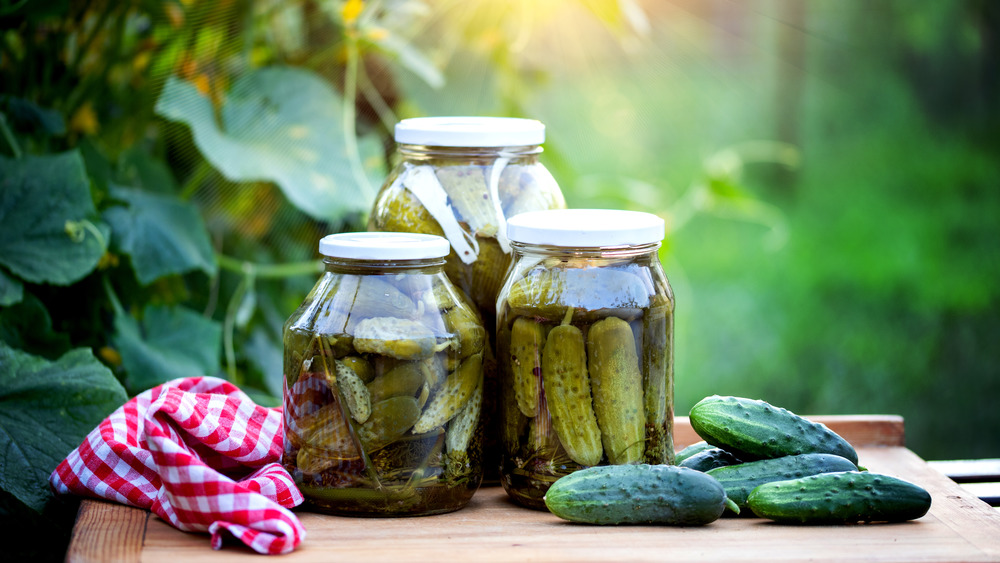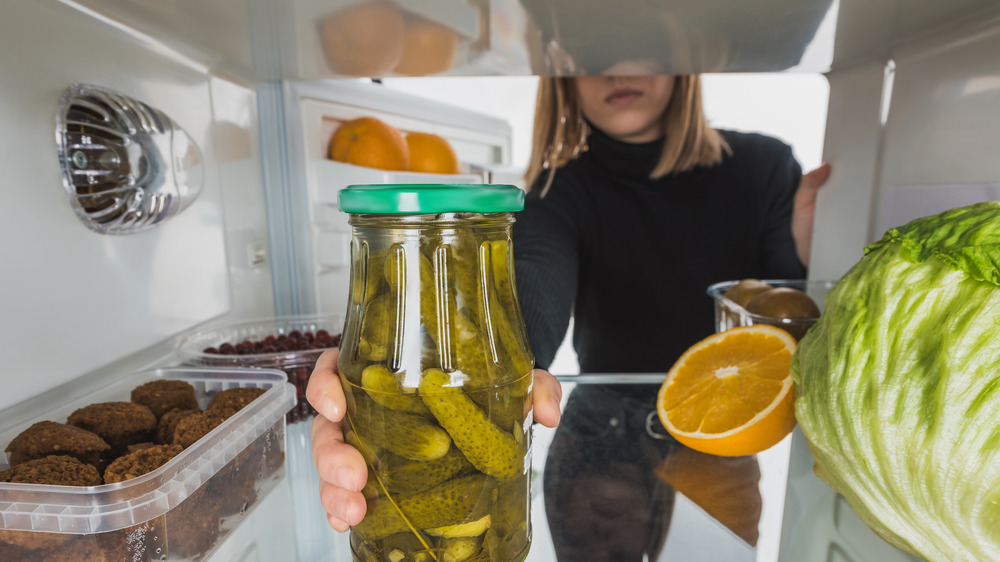The Real Reason Some Pickles Are Sold Refrigerated
We've never met a pickle we didn't like. Whether savory, spicy, or sweet, pickles can add just the right tang chopped up in a salad; infuse the perfect sweet or salty crunch on your favorite sandwich; or provide just the right amount of heat to nosh on and compliment your best Bloody Mary or vodka martini at brunch with friends. A briny pickle just adds the right amount of flavor to so many dishes. And don't believe the hype about the ambivalent feelings pickles bring out in people. We Americans definitely like them. According to Statista, 245.85 million Americans were munching down on these crunchy pickled cucumbers in 2020.
Per PBS, pickles have been around for a really long time. The network shares that even Cleopatra and Shakespeare found a muse of inspiration in the bumpy green pickle. Pickles are made by soaking cucumbers in a brine compromised of either saltwater and seasonings or salt and vinegar. It is during this process that fermentation occurs. This submerging bath is what preserves the pickles and allows you to eat them at a later date. But have you ever wondered why some pickles require refrigeration while other pickles don't? Us too.
Refrigerated pickles have not been pasteurized
According to the blog Does it Go Bad, refrigerating pickles or not refrigerating pickles all comes down to whether or not the pickles have been pasteurized. Pickles that are not pasteurized are still fermenting, so they need to be stored in the refrigerator to decrease the speed of the fermentation process; otherwise, you are going to end up with some over-the-top tart and bitter pickles. Jars of pickles that have been pasteurized, on the other hand — meaning all the bacteria has been killed and no more fermentation is taking place — are generally going to be located on the shelves where you find canned foods and salad dressings that also do not need to be refrigerator until they are opened.
Does it Go Bad also cautions that regardless if you buy pasteurized or unpasteurized pickles, storage is key. Once you pop off that top, the jar needs to go in the refrigerator, and you have to keep your pickles fully covered in their pickle juice to ensure they don't dry out. This will also help preserve that perfect pickle flavor. Storing your opened pickles properly can increase their shelf life by a couple of months — if they aren't eaten before that.

